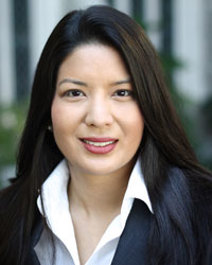Entrepreneurship involves creation. This can include, but not limited to, the creation of new opportunities and technologies, the creation of new firms, the creation of new products and markets within existing firms, the creation of new and better ways of doing business, and the creation of key entrepreneurial resources, which ultimately leads to the creation of value—economic and social—for entrepreneurs as well as various stakeholders. Entrepreneurship is foundational to the study of business management. Indeed, without entrepreneurship, there is no business to manage.
The Entrepreneurship group at Ivey is made up of faculty who research different elements of entrepreneurship at all levels of analysis—from individuals to global environments. The entrepreneurship group brings together faculty members whose research philosophies, theoretical orientations, and methodological approaches often diverge, fostering a dynamic scholarly environment where different perspectives generate deep insights into entrepreneurial phenomena.
*Please note that Entrepreneurship is a stream under General Management
Areas of Research Focus
- Entrepreneurial cognition and decision making
- Entrepreneurial firm growth and performance
- Innovation, technology and AI
- The economics of entrepreneurship
- Gender, culture and entrepreneurship
- Social innovation and enterprise
- Entrepreneurship and Social Justice
- International entrepreneurship
- Entrepreneurial Support Organizations and Public Policy
- Gender and Investing
Faculty in the Entrepreneurship group have regularly published in premier management, entrepreneurship and technology journals, including the Academy of Management Journal, the Academy of Management Review, Entrepreneurship Theory & Practice, Journal of Business Venturing, Management Science, MIS Quarterly, Small Business Economics, Strategic Entrepreneurship Journal, and Strategic Management Journal, among others.
PhD Student Opportunities
Each year, the Entrepreneurship Area Group admits one or two qualified, highly motivated, and intellectually curious applicants into our PhD Program. We welcome applicants who are interested in any entrepreneurship-related (broadly defined) topics, including, but not limited to, the current and past Areas of Research Focus of our faculty members listed above. Once admitted, the student will be assigned a Faculty Mentor with whom they will work closely for the first two years in the Program.
Equity, Diversity, and Inclusion at Ivey
Ivey Business School is committed to Equity, Diversity, and Inclusion. Please explore Ivey’s EDI homepage for more information on Ivey's commitment to EDI, to read about Ivey’s progress in the EDI Update, and to meet Ivey’s EDI Advisory Council members.
Ivey Business School invites applications from all qualified individuals. Ivey is committed to employment equity and diversity in the workplace, and welcomes applications from women, members of racialized groups/visible minorities, Indigenous persons, persons with disabilities, persons of any sexual orientation, and persons of any gender identity or gender expression.
PhD Graduates
The doctoral program in Entrepreneurship is designed for those interested in pursuing academic careers in entrepreneurship at top business schools. Past graduates have been placed in a variety of academic positions all around the world. Some examples include:
Assistant Professor of Entrepreneurship, University of Southern California

PhD Dissertation:
The relationship in entrepreneurial teams offer fertile ground for novel theoretical insight and are highly consequential for venture survival. Audra's research focuses on how entrepreneurial teams come together and succeed together, examining cofounder selection, satisfaction and dynamics associated with meeting venture objectives. Audra's work has practical implication too, helping entrepreneurs achieve better cofounder fit, satisfaction, and new venture outcomes.
Dr. Maya Kumar
Assistant Professor, IE Business School

PhD Dissertation:
The Role of Early Customers in the Venture Creation Process
While startups’ interactions with early potential customers may occur long before product creation, entrepreneurs often fail to recognize how these interactions impact startup development. My research proposes that early customers are central influences and develops a model of customer interactions. More specifically, my dissertation focuses on answering: When and how do startups interact with early customers during the venture creation process, and how do these interactions create path dependence for the type of organization being created? Read more about this thesis
Dr. Ketan Goswami
Assistant Professor of Entrepreneurship and Innovation

PhD Dissertation:
Entrepreneurial Action by Metis and First Nations entrepreneurs in Saskatchewan: Similarities and differences with established notions of Entrepreneurial Action
While there is a fair amount of research on community-based and band-driven Indigenous entrepreneurship, less is known about entrepreneurial actions by individual self-employed Metis and First Nations entrepreneurs in Canada/Turtle Island. Metis and First Nations entrepreneurs face a differential set of obstacles in their pursuit for economic self-determination compared to their non-Indigenous counterparts. This dissertation endeavors to understand entrepreneurial actions undertaken by individual Metis and First Nations entrepreneurs and their similarities and differences with dominant notions, more specifically the extant notions of opportunity-driven and necessity-driven entrepreneurial actions.
